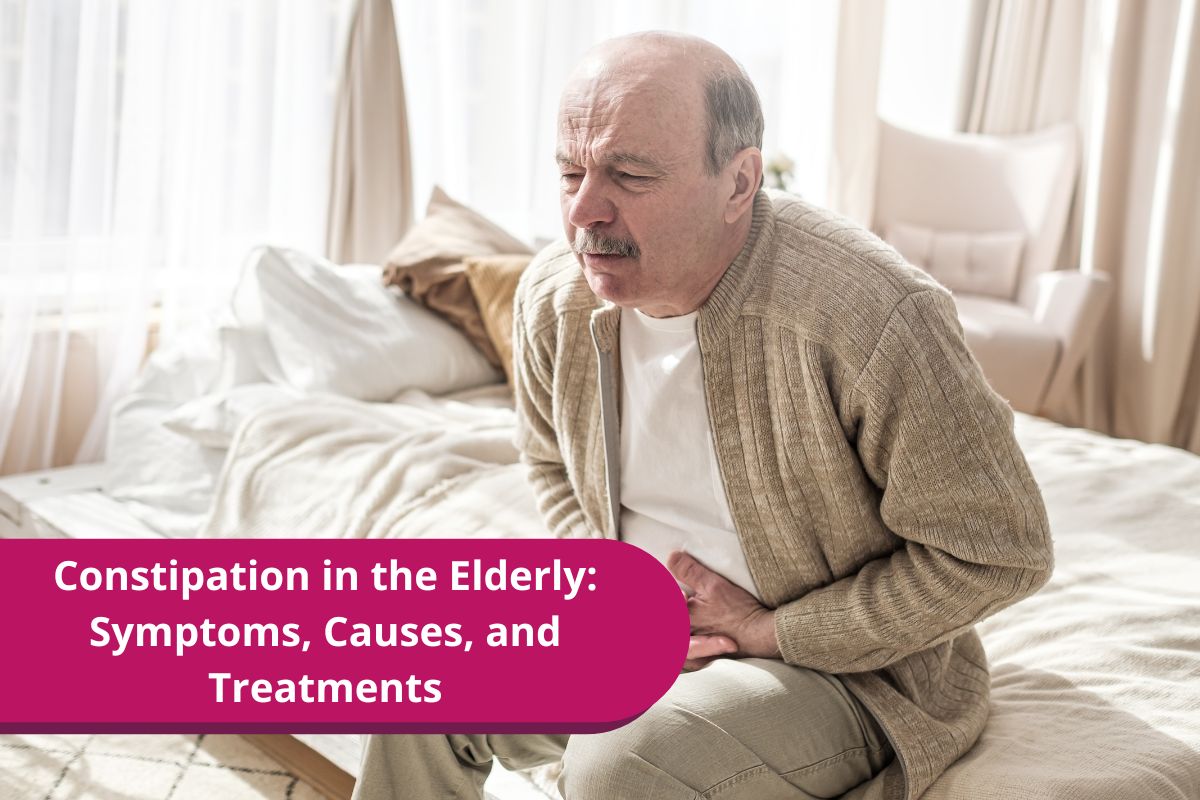Constipation is the source of infrequent bowel movements or difficult passage of stools which occurs for several weeks or more. Everyone has experienced constipation at least once in their lives. However, it is more common in the elderly than in young people. Read on to learn more about the symptoms, causes, and possible treatments for constipation.
Symptoms of Constipation
The most common symptom of constipation is not having the ability to pass stool. Some people think you need to have a bowel movement once a day, but this is not true. Bowel movement schedules look different for each and every person.
Some folks have bowel movements once a day, while others only three times a week. If your bowel movements are few and far between, you may be suffering from constipation.
Below is a list of some of the symptoms of constipation. If you are experiencing any of these symptoms, you may indeed be suffering from constipation.
- A difficult time passing stool
- Fewer than three bowel movements a week
- Hard or lumpy stool
- A feeling of not having emptied your bowels, or a feeling of not being able to empty your bowels
Causes of Constipation in the Elderly
In older adults, many medical conditions and medications can create constipation. Constipation in the elderly is more common because the elderly tend to have more medical conditions and may be on more medical supplements than younger adults.
Below is a list of medical conditions that can cause constipation.
- Medical conditions that affect hormones and metabolism, such as diabetes.
- Medical disorders that affect nerves and muscles, like having a stroke, a spinal cord injury, and Parkinson’s disease
- Some other medical conditions that can lead to constipation are blockages such as tumors, disorders of the pelvic floor, and other gastrointestinal disorders, such as IBS (irritable bowel syndrome)
- Medical conditions that affect daily habits and routines, such as Alzheimer's and dementia
- Changes in exercise and diet post surgeries and other medical procedures may also lead to constipation
Certain types of medications and dietary supplements (both prescription and OTC) may also cause constipation, including:
- Anti-depressants
- Antihistamines
- Painkillers
- Antacids containing calcium or aluminum
- High blood pressure medications
- Anticholinergics
- Diuretics
- Antispasmodics
- Anticonvulsants
- Iron supplements
- Medical anesthesia
Below is a list of other things that can lead to constipation:
- Not eating enough fiber. You can get fiber from eating vegetables, fruits, and whole grains. Consuming too much high-fat meat, dairy, eggs, sweets, and processed foods can cause constipation.
- Not enough fluids. Water is the most important fluid you can drink. In addition to water, other fluids can help pass stool.
- Not enough physical activity. Long periods of inactivity can increase the risk of constipation.
Treatments
Most of the time, constipation can be treated at home. Below is a list of remedies to help make your bowel movements more frequent and easier to pass.
- Eating a healthy diet that includes natural fibers from fruit, vegetables, and whole grains can help keep bowel movements regular. Here are some tips for building a healthy and balanced diet.
- Drink plenty of fluids. Constipation can get worse without a regular intake of fluids. Drinking water or other fluids can help with regular bowel movements.
- Living an active lifestyle can help with constipation too. Make physical activity part of your everyday life to help reduce constipation and keep your bowel movements regular. You can also check out our previous blog post on easy at-home exercises for older adults.
- If diet and exercise don’t help with constipation, you can always try OTC fiber supplements or stool softeners. It’s best to consult with your doctor before taking any medications.
Occasionally constipation can lead be a sign of something more serious. You should see a doctor if you’re experiencing any of the following symptoms, blood in your stool or bleeding from your rectum, the inability to pass gas and serious stomach pains, vomiting or fever, and lower back pain.
If you’re looking for home care assistance in Lafayette, LA, look no further than Home Instead. We offer in-home care for seniors with a variety of needs, such as personal care, transportation, and chronic illness care.
Contact us to learn more about our services or to schedule a free, no-obligation Care Consultation!
Sources:
https://www.nia.nih.gov/health/concerned-about-constipation
https://www.mayoclinic.org/diseases-conditions/constipation/symptoms-causes/syc-20354253



